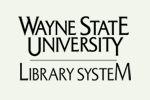Abstract
Research on mediation as a means of dispute resolution has alluded to potential injustices that may emerge from the process when conflict occurs between persons of unequal status. An example of such inequity would be when one parly in the dispute is an individual who is somehow dependent on the second party (who may represent an organization or institution).
In a recent evaluation of special education mediation services, structural and organizational factors were identified that could influence the impact of power imbalance between disputants (parents and school personnel) independent of the mediation session itself. This paper examines these factors and proposes that future research broaden its perspective on power-imbalance theories associated with mediation. In particular, the present examination brings into question the sufficiencies of claims that mediation is procedurally inappropriate when an inherent power imbalance exists in conflict situations.
Recommended Citation
Mastrofski, Jennifer Adams
(1992)
"Power Imbalance within the Setting of Special Education Mediation: A View toward Structural and Organizational Factors Influencing Outcome,"
Sociological Practice: Vol. 10:
Iss.
1, Article 8.
Available at:
https://digitalcommons.wayne.edu/socprac/vol10/iss1/8
